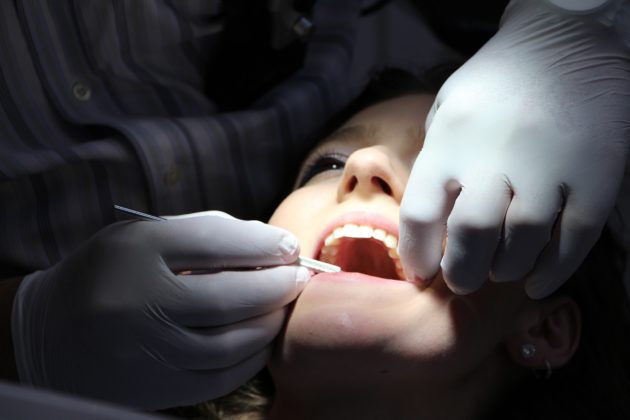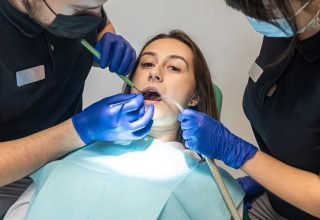15 Important Questions to Ask Your Dentist
Dental health is often the last thing we worry about when we think about our overall health issues and how to prevent them. To keep up a good oral health is essential to avoid problems in future, like loosing your teeth, chronic bad breath, or worse health conditions. Therefore it is necessary that you know what kind of questions you should ask your dentist before a medical exam. Here are a few to get started with.
Dental Health
You may be wondering why dental health is important? Well, the mouth is the primary point of entry of food, and germs, which can cause potential health risks.
However, taking care of your dental health can help you in understanding the points where you may be required to pay more attention.
Dental health is an important part of oral health as it requires regular care of our teeth to avoid the risk of dental issues such as cavities and gum diseases. The Centers for Disease Control and Prevention shared the importance of oral health. It says that oral health plays an important role in protecting your mouth from oral health conditions that may affect your quality of life.
Dental health is a crucial part of oral health that ensures that your overall health and wellbeing is maintained. Poor oral hygiene can lead to gum diseases and dental cavities that may require sophisticated procedures.
The experts such as a dentist or an oral health therapist guide us on the ways to take care of our health and wellbeing. The lifelong commitment of maintaining healthy gums and teeth starts during childhood.
The following list of questions provides you with an idea of what to ask your dentist the next time you pay them a visit.
1. What Can I Do To Prevent Cavities?
If you leave a cavity in your teeth unchecked it can grow pretty fast. Ask your dentist the best tips to avoid cavities and get information on the treatment options just in case you get one. For example brushing your teeth twice a day with fluoride toothpaste or ideally brushing after every meal will help you in preventing cavities.
Getting dental cleaning on a regular basis will remove the plaque from your teeth and hence reduce the risk of getting cavities. Your dentist will check if you have got any cavities after every cleaning. Cavities are holes caused by tooth decay on the surface of your teeth. In the early stage they do not cause any discomfort but if your ignore them you can develop pain and sensitivity.
There are many factors which increase the risk of cavities, such as sweet drinks, sweet food and bacteria found in the mouth. You can ask your dentist to develop a plan for you to reduce the cavities this may include brushing and flossing more than you normally do, avoid certain kind of foods and eating chewing gum that is sugarless to increase the amount of saliva in your mouth, saliva helps in controlling bacteria in the mouth.
2. Why Is Fluoride Important To My Dental Health?
Fluoride is a mineral that is found in many foods and treated water. You may have heard the word fluoride in toothpaste and mouthwash commercials. The reason is that fluoride plays a very important role in the oral health as it makes the teeth more resistant to tooth decay, it can also prevent tooth decay that has already started. It makes the tooth enamel strong and so the risk of tooth decay becomes low. After your dentist does an oral exam he or she can decide whether you need to increase the intake of fluoride. You can use fluoride containing toothpastes and mouthwashes.
3. What Can I Do To Improve My Dental Health?
Everybody has a different mouth, so you need to do more than just the general recommended guidelines of brushing teeth after every meal and doing floss every day. Your dentist can provide you information specifically to improve your dental health. These professionals can give you advice whether you should brush more often or if you need a different type of toothbrush or whether you need flossing. Your dentist will also let you know if you need more fluoride or less and how often you should visit. You must always ask about any new product that you want to use so that you get proper information before you put any money in it.
4. What Can You Do To Improve My Dental Health?
Your dentist can help to optimize your oral health by giving you for example night guards if you grind your teeth or give treatment for bad breath. But dentists are not mind readers so to give you the latest oral care they need to know the problems that you have even if you think they are just minor. Letting your dentist know about any kind of pain, abnormality or discomfort that you might be experiencing will help him or her to think of solutions that can help you and may even prevent you from a bigger problem that could occur later.
5. What Is My Overall Dental Health Status?
Ask your dentist to do a general check-up of your mouth. This includes to look for any bump or lump that should be there or gauging bone density or checking for unintentional teeth grinding. Your dentist will make sure that everything is properly functioning and if there is anything which is not then they may start discussing the treatment options with you.
6. Is My Medication Affecting My Oral Health?
Many medications cause dry mouth and other types of conditions that may affect your dental health. Therefore it is extremely important to ask your dentist about the effects on your oral health, of any medication that you are using. Some medications increase the risk of tooth decay. As a matter of fact, according to the FDA, more than four hundred prescription and over-the-counter medicines cause dry mouth as a side effect. People with dry mouth have less saliva in their mouth and saliva helps in controlling bacteria in the mouth helps to wash away food particles. Lower amount of saliva can increase the risk of cavities.
7. Do You See Warning Signs Of A Serious Condition?
It may be surprising to know that many health problems start from the mouth. Changes inside the mouth can be signs of warning of some serious health conditions like osteoporosis, deficiency of vitamins, inflamed gums can be a sign of diabetes. Make sure that your dentist knows which symptoms must be brought to your doctor’s attention. Almost 9 out 10 diseases can cause symptoms in a person’s mouth.
Therefore it is important that you see your dentist at least two times in a year for dental check-up and cleaning. It is also important that you keep an eye out for any new problem in your mouth, like bleeding gums, sore tooth, jaw or gum pain, irregular patches in the mouth, loose teeth or lumps. If there are any of these warning signs visit your dentists immediately so that he or she may diagnose the cause or refer you to another healthcare professional to get further evaluation.
8. Why Do I Need Dental X-Rays?
Your oral health determines how often you need dental X-rays. A person who has had no cavities or any other dental problem for a few years would not need X-rays at every appointment, but in case your dental health is not stable and your progress is being monitored by your dentist then you may need frequent dental X-rays. You must ask your dentist for the reason for taking an X-ray.
The dentist can take X-rays if you are a new patient and can repeat X-rays once in a year. X-rays help to find out problems or mouth diseases that are not detected in an oral exam. These usually have an additional cost but they can save you money in the long run as they help the dentist in diagnosing dental issues at early stage. X-rays are helpful in detecting problems like tooth decay, abscess, bone loss, changes in bone, tumors and cysts.
9. What Causes Sensitive Teeth?
Tooth sensitivity can be caused due to several reasons. Such as tooth decay, gum erosion, tooth erosion, worn tooth enamel, grinding your teeth at night etc. Patients who suffer tooth sensitivity feel pain when they eat something that is hot or cold and sweet or acidic. This happens due to the thinning of tooth enamel. Tooth enamel protects the tooth pulp or dentin from extreme temperatures and when it becomes thin the protection also reduces and hence the patient feels pain. In some patients it might be due to tooth grinding at night, tooth whitening, receding gums, orthodontics and filling or chipped or fractured teeth. Your dentist will give the affected teeth an examination and recommend the treatment to reduce the sensitivity.
10. How Can I Improve The Whiteness Of My Teeth?
Your confidence is boosted when you know you have a beautiful smile showing those pearly white teeth. Many people get teeth discoloration over the years. This can be caused by drinking too much coffee or wine, smoking tobacco and eating pigmented foods. You can treat these stains by using a home whitening kit or get a professional whitening regularly. You can use composite bonding or application of veneers for intrinsic discoloration; this can give a more permanent solution.
11. How Often Should I Get A Dental Checkup?
Every person has different dental health but generally you must visit a dentist at least once or twice a year. Even if you have excellent dental condition. This helps you get a professional cleaning regularly. And makes sure that if there are potential problems they get identified at an early stage.
12. What Are The Best Ways To Practice Good Oral Hygiene At Home?
It is important that grownups brush and floss their teeth daily. But to take care of your oral hygiene in a more detailed manner follow these steps for good dental health. They are
- use products containing fluoride
- limiting snacks high in sugar
- eat fruits and vegetables
- avoid tobacco
Recent evidence suggests that exposure to too much fluoride can cause a serious dental condition. Thus, you should monitor the fluoride in your toothpaste and it must be done in consultation with an expert.
The ingestion of excess fluoride can cause dental fluorosis that leads to the discoloration of teeth enamel. This is also an indication that the body has been overexposed to the chemical which may require immediate attention.
13. How Do I Prevent Tooth Decay, Gingivitis And Other Problems?
Eating a balanced diet and going to your dentist regularly. Doing an oral care routine twice a day is the best way to maintain dental health. Conditions like diabetes or AIDS can also affect the dental health. So can medication and certain other kinds of chemotherapy. Protect your oral health from these problems by bringing them to your dentist’s notice and asking them for advice. This is because the condition can quickly advance, causing an issue.
14. Is There Anything That I Should Tell My Family Doctor About?
There are many health problems that start from the mouth. Changes in your mouth may be signs of certain conditions like vitamin deficiencies, osteoporosis etc. Inflamed gums may indicate diabetes. Your dentist can help you in identifying which symptoms should you bring to your doctor’s attention.
15. Is There Anything You Need To Know From My Family Doctor?
Changing your routine must involve the dentist as well. For example medications you are taking which affect your mouth or any health related changes or conditions in your body.
Recent Inventions In Dental Care That Can Help You Out!
-
Water flosser: Even though the invention has existed for more than 50 years, only dentists would use it. Now, the water flosser is available for use at home as well.
-
Electric toothbrush: The use of electric toothbrush is not just for the older adults anymore. From children to adults, everyone can improve their dental hygiene by adding this product into their routine.
-
Professional whitening kit: Its for people who want to improve the appearance of their teeth, making them ‘whiter’ without spending a fortune! There are now “whitening strips” available by several reputed companies that have visibly great results. Even though research suggests that the natural color of the enamel is slightly yellow. Hyping up white teeth by the fashion and film industry has led people to follow suit.



